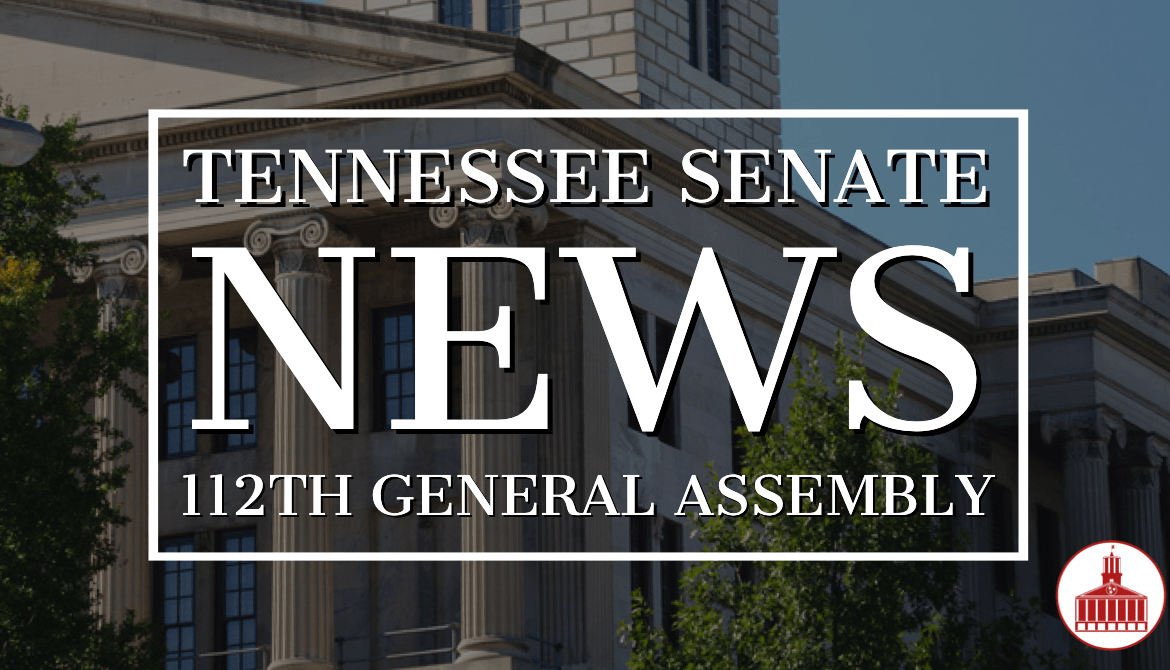By Senator Page Walley
Our state budget led a host of important bills approved by lawmakers last week as our 2022 legislative session begins to close.
This year’s no-debt budget highlights our continuous efforts to cut taxes for Tennesseans, maintain fiscal responsibility, ensure public safety and prioritize education. It invests $52.58 billion in the state of Tennessee for the 2022/2023 fiscal year, with total legislative initiatives making up $84.1 million recurring and $570.8 million in non-recurring expenditures.
To maintain fiscal responsibility, we made a $250 million investment in the state’s Rainy Day Fund, which serves as Tennessee’s savings account to withstand economic downturns. This allocation raises the fund to a historic level of $1.8 billion. Another key conservative component of this budget is that $1.3 billion of Tennessee’s $3 billion revenue surplus is set aside for future use. Additionally, the budget uses the surplus for many one-time expenditures to prevent the growth of state government but still provide resources and relief to important initiatives.
In this budget, we continued our commitment to Tennessee taxpayers by ensuring citizens can keep more of their hard-earned money. With additional tax and financial relief appropriated by the General Assembly, Tennesseans will be able to recognize a total of $281 million in tax and financial savings in the 2022/2023 fiscal year.
Tennesseans will benefit from the financial and tax relief provided in this year’s budget. It includes $80 million for a grocery sales tax holiday for August 2022. We also wanted to ensure there was financial relief in the budget that only Tennesseans could take advantage of and not out-of-state residents who shop and do business in Tennessee, so the budget provides $121.6 million to eliminate the state’s $29 license plate registration fee for one year.
We allocated $9 million to continue our multi-year commitment to eliminate the professional privilege tax. This appropriation will remove the annual $400 tax physicians pay in order to practice their profession. In 2019, we passed legislation eliminating the professional privilege tax for 15 licensed professions.
Another significant tax cut includes $68 million for a sales tax reduction on broadband supplies. This tax reduction will incentivize companies to accelerate the deployment of needed broadband services to rural communities.
Other reductions in taxes we added are $2.8 million to reduce sales tax on agricultural machinery and equipment to mirror tax reductions that manufacturers in Tennessee currently receive and $360,000 to eliminate a tax on gold, bullion and silver.
Because Republican lawmakers take great care when allocating taxpayer dollars to large initiatives, after much consideration the Senate voted to remove a budget item proposed by Governor Lee to issue a $500 million bond to help complete a new covered stadium that would be home to the Tennessee Titans. Senate Republicans expressed concerns about the wisdom of such a large investment in a sporting venue. Ultimately, the proposal was added by the House of Representatives and the final version of the budget included the $500 million bond authorization for the Titans stadium and $55 million recurring to cover the debt service.
The Senate was always uncomfortable with the Titans bond authorization. That was clear both on the floor and in committee. But ultimately, with a $52 billion budget you cannot let perfect be the enemy of good.
Education
Education remains a top priority in the 2022/2023 budget. It includes the largest increase in K-12 education funding in the history of Tennessee. With an additional $1 billion in K-12 funding, Tennessee is investing a total of $6.5 billion in K-12 education. This includes $750 million for the Tennessee Investment in Student Achievement (TISA) Act, along with $125 million to increase teacher salaries. We also provided $20 million for Humphrey County Schools to cover losses from devastating floods last year.
Many significant investments in higher education were made including:
- $200 million for TCAT infrastructure improvements
- $643,500 to increase middle college scholarships from $1,250 to $2,000 per semester
- $19.4 million to alleviate TCAT Waitlist
- $500 million to CTE grants for high school and middle school students
- $88 million for GIVE and HOPE expansions bringing the scholarship award to $5,700 per year for juniors and seniors and $4,500 per year for freshman and sophomores
- $90 million for the outcomes-based funding formula
- $66.3 million for a 4% salary increase within higher education
- $18 million to build a new TEST hub at UT Martin
Public Safety
To ensure Tennessee remains a great place to live, work and raise a family, lawmakers made significant investments in public safety. A $25 million appropriation was included in the budget for key legislation protecting victims of violent crimes and providing true accountability for those who commit crimes. This “truth in sentencing” legislation requires a person convicted of certain violent offenses to serve 85% to 100% of their sentence before becoming eligible for release.
We added $7.5 million in one-time money to the $500,000 proposed by the governor for competitive grants to be awarded to volunteer fire departments and rescue squads for equipment and supplies, bringing the total to $8 million. Also added by the legislature was $6 million to increase the per day rate paid to local jails from $39 per inmate per day to $41.
Other investments in public safety include:
- $365 million for the law enforcement training academy
- $100 million for crime prevention
- $43.2 million to increase correctional officers’ salaries to $44,520
- $16 million for 100 new state troopers
- $4.2 million for 20 additional TBI agents to help combat human trafficking, cyber security, narcotics, and more
- $25.3 million for evidence-based programming in seed grants
- $9 million for educational technology in local jails
- $1.2 million total to add 11 more assistant district attorneys general
- $800,000 to raise the retirement benefits for highway patrol and commissioner officers
- $3.6 million for security measures and personnel at TCATs
Health and Welfare
Taking care of the most vulnerable populations in Tennessee continued to top the list of priorities for the General Assembly in 2022. The budget allocates funds for mental health treatment centers, drug rehabilitation, the adult health care safety net and Alzheimer’s and dementia caregivers.
Details on these budget initiatives include:
- $5.5 million for mental health treatment centers
- $2 million for Naltrexone which has been an effective treatment in drug courts
- $5 million for the adult health care safety net
- $1 million per year for a 3-year pilot program for respite care for Alzheimer’s and dementia caregivers
- $3 million to establish an education and dental safety net fund pilot program that will serve 33 counties devoid of dental services
- $9.7 million for salary raises for DCS caseworkers to combat hiring challenges
- $1 million to the Jason foundation to address suicide rates
Grants
The budget also includes $17 million for grants to be distributed statewide for important initiatives. These include:
- $1 million to senior centers
- $900,000 to the Epilepsy Foundation
- $500,000 to Big Brothers Big Sisters
- $3 million to county fairs
- $5 million to Volunteer Fire Departments (repeated from public safety)
- $2 million to search and rescue squads (repeated from public safety)
- $1 million to DIDD for universal changing tables
- $10 million to the Winds of Liberty Museum for military veterans
As we conclude our 2022 session, I will continue to inform you on legislation that was passed, including more bills about our 2023 budget which begins July 1, 2022. I look forward to continuing to visit across the district to hear from you and to prepare for our 2023 legislative session. Thank you for the privilege of serving as our state senator.


